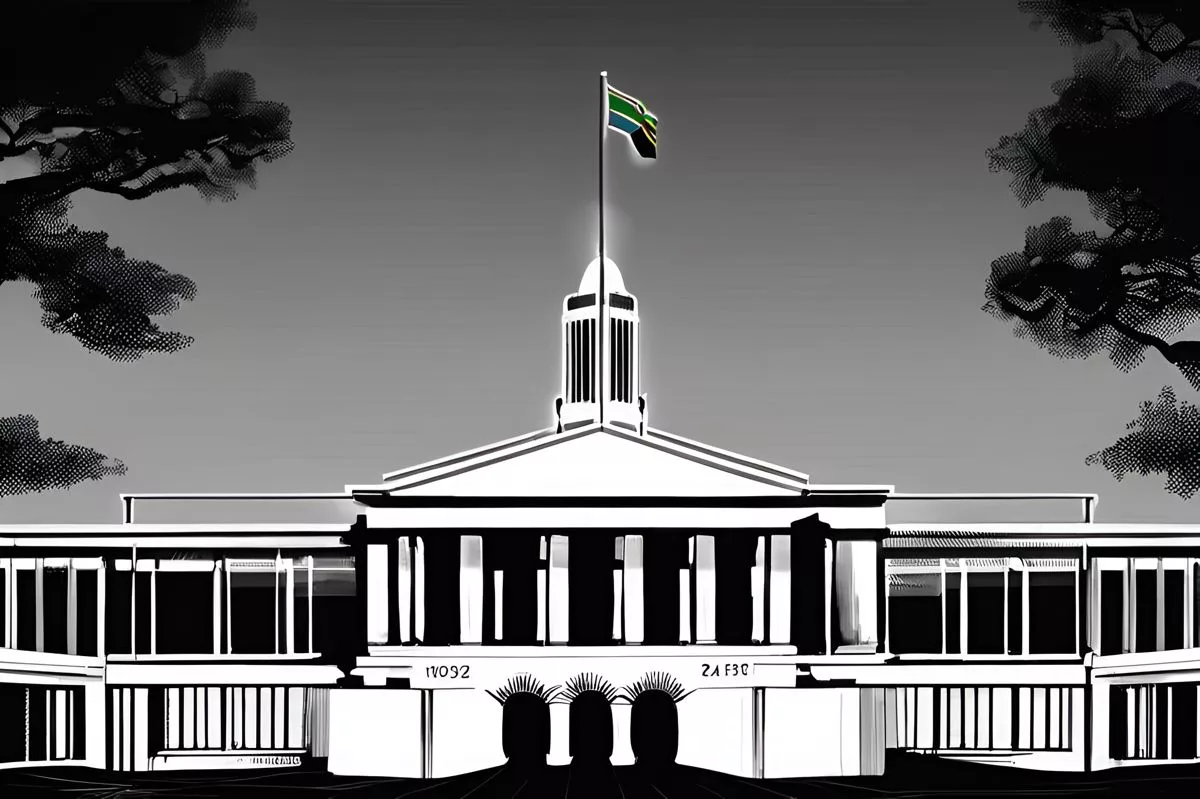South Africa’s Bafana Bafana secured a 2-0 victory over Morocco at the Africa Cup of Nations, solidifying their reputation as the Atlas Lions’ nemesis. Morocco’s World Cup accomplishments have not translated into success at the Cup of Nations, where they have struggled to exert dominance since their last win 48 years ago. Mali also achieved a historic victory by defeating Burkina Faso 2-1, reaching the quarter-finals for the first time since 2013. The remaining squads eye the opportunity to inscribe their names in the chronicles of African football history as the quarter-finals loom.
Bafana Bafana’s victory over Morocco at the Africa Cup of Nations signifies a resonating triumph for the South African team, who have consistently shown themselves to be the bane of the Atlas Lions. Morocco, despite their illustrious reputation and World Cup accomplishments, has continually struggled to exert dominance at the Cup of Nations, which has been a baffling saga, particularly since their lone triumph 48 years ago.
The Fall of Morocco and the Rise of South Africa
In a series of startling events at the [Africa Cup of Nations](https://capetown.today/south-africas-bafana-bafana-at-the-africa-cup-of-nations-2023/), Morocco became the latest casualty, suffering a 2-0 defeat at the hands of South Africa’s Bafana Bafana. This win signifies a resonating triumph for Bafana Bafana, who have consistently shown themselves to be the bane of the Atlas Lions, with Moroccan ace Achraf Hakimi failing a significant penalty shot.
Since their extraordinary feat of reaching the World Cup semi-finals in Qatar two years prior, Morocco has only experienced defeat twice in thirteen matches. South Africa orchestrated both of these losses, further emphasising their role as Morocco’s nemesis. This unforeseen outcome in the sweltering city of San-Pedro co-occurred with Mali’s 2-1 victory over Burkina Faso in Korhogo, where Lassine Sinayoko scored the decisive goal.
An Unpredictable Tournament
The Africa Cup of Nations has shown itself to be an unforgiving platform. The top ten African teams, including the reigning champions Senegal, as well as Tunisia, Algeria, Cameroon, and Burkina Faso, have made an early departure. The quarter-finalists are now gearing up for the next phase. South Africa will face Cape Verde, while the host nation, Ivory Coast, is set to challenge Mali. Nigeria, energised by Victor Osimhen’s stellar performance, will confront Angola, and the Democratic Republic of Congo is set to take on Guinea.
Notably, South Africa, Ivory Coast, Nigeria, and DR Congo have previously tasted victory at the Africa Cup of Nations. The remaining four contenders, however, are vying for their inaugural win. Despite Morocco’s illustrious reputation and World Cup accomplishments, history indicated their susceptibility against South Africa. The two teams have faced off five times in the past at the Cup of Nations, with South Africa securing two wins and two draws. Morocco’s continual struggle to exert dominance at the Cup of Nations has been a baffling saga, particularly since their lone triumph 48 years ago.
The ‘African Curse’ and South Africa’s Victory
Morocco’s coach, Walid Regragui, a former national team full-back, has attributed these repeated failures to an ‘African curse.’ This curse seemed to persist as South Africa clinched a thoroughly deserved win. Evidence Makgopa shattered the stalemate in the 57th minute, followed by a missed chance from Morocco when Hakimi’s penalty hit the crossbar.
The game witnessed a significant twist with a VAR-reviewed foul by Manchester United’s midfielder Sofyan Amrabat on Teboho Mokoena, resulting in a critical red card for Amrabat. Mokoena, showcasing his skill with set-pieces, launched the subsequent free-kick past Yassine Bounou, extending South Africa’s lead.
Mali’s Historic Breakthrough
Meanwhile, in the significant coal city of Korhogo, Mali achieved a historic victory by defeating Burkina Faso 2-1, reaching the quarter-finals for the first time since 2013. The match started with a bang, with an own goal by Edmond Tapsoba handing Mali the lead. Lassine Sinayoko doubled the lead post half-time, demonstrating his consistent form with his third goal at the Cup of Nations. Burkina Faso’s captain Bertrand Traore narrowed the gap with a penalty goal. Still, their late rally was disallowed after Issoufou Dayo’s goal was deemed offside.
Despite the scorching temperature of 36 degrees Celsius, Mali netted the second fastest goal in the tournament, just 133 seconds in. The game, attended by Patrice Motsepe, President of the Confederation of African Football (CAF) from South Africa, remained relatively calm until Sinayoko’s potent close-range shot reinvigorated the crowd.
The Africa Cup of Nations has indeed been a theatre of surprises, with powerful teams falling and underdogs rising to prominence. As the quarter-finals loom, the remaining squads eye the opportunity to inscribe their names in the chronicles of African football history. We anticipate witnessing more engrossing narratives on this grand platform where dreams are realised, and legends are created.
1. What was the score of the match between South Africa and Morocco at the Africa Cup of Nations?
South Africa secured a 2-0 victory over Morocco at the Africa Cup of Nations.
2. How has Morocco performed at the Cup of Nations in recent years?
Morocco has struggled to exert dominance at the Cup of Nations in recent years, despite their illustrious reputation and World Cup accomplishments.
3. Who did Mali defeat in the Africa Cup of Nations, and what was significant about this victory?
Mali achieved a historic victory by defeating Burkina Faso 2-1, reaching the quarter-finals for the first time since 2013.
4. Which teams have previously tasted victory at the Africa Cup of Nations?
South Africa, Ivory Coast, Nigeria, and DR Congo have previously tasted victory at the Africa Cup of Nations.
5. What is the ‘African curse’ attributed to by Morocco’s coach?
Morocco’s coach has attributed repeated failures at the Cup of Nations to an ‘African curse.’
6. Who is the President of the Confederation of African Football (CAF), and where is he from?
Patrice Motsepe, President of the Confederation of African Football (CAF), is from South Africa.












